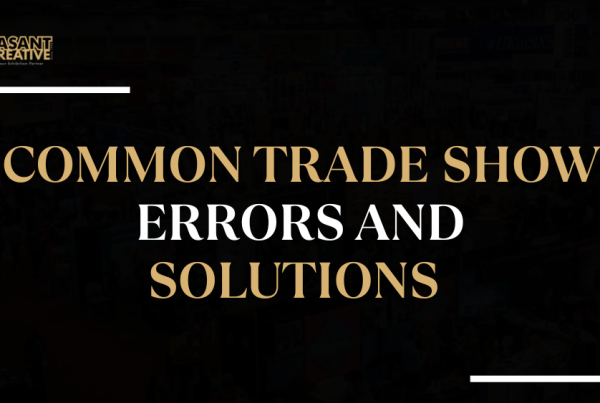Trade shows provide businesses with a platform to showcase their products, connect with potential clients, and expand brand awareness. With numerous industry-specific events happening worldwide, choosing the right trade show can significantly impact a company’s success. Selecting an event that aligns with your business goals and market strategy is crucial for gaining maximum exposure and return on investment.
Define Your Goals
Setting clear objectives is essential before committing to a trade show. Determine whether your primary goal is lead generation, brand awareness, networking, or launching a new product. Identifying these goals will help you select a trade show that best supports your business ambitions and ensures measurable outcomes.
Align Trade Show Participation with Business Goals
Each trade show serves a different purpose, ranging from B2B networking to direct consumer engagement. If the goal is to establish partnerships, opt for industry-focused expos. If product sales are the priority, choose consumer-oriented trade shows. A well-matched event will enhance engagement and maximize business growth opportunities.
Identify All Costs
Beyond booth rental fees, trade shows involve expenses such as travel, accommodations, promotional materials, staffing, and logistics. Assessing the total investment ensures financial preparedness and avoids unexpected costs. Understanding all expenses helps businesses allocate budgets effectively and plan for optimal resource utilization.
Compare Costs vs. Potential ROI
Evaluate whether the trade show offers a substantial return on investment. Analyze past exhibitor success, expected audience size, and lead conversion rates. A well-attended event with high-quality prospects justifies the cost. At the same time, an underperforming show can drain financial resources with minimal returns.
Analyze Past Exhibitors and Attendees
Review the list of previous exhibitors and attendees to gauge the trade show’s relevance to your industry. Well-established businesses and decision-makers attending the event indicate its credibility. A trade show with a strong industry presence increases networking opportunities and the likelihood of generating valuable leads.
Consider the Trade Show’s Reputation
A reputable trade show attracts influential professionals and key stakeholders within an industry. Research reviews, testimonials, and industry reports to determine the event’s credibility. Established events with a strong track record often provide a higher level of exposure and attract serious buyers and partners.
Explore Networking Possibilities
Trade shows serve as a hub for connecting with potential clients, investors, and industry experts. Look for events offering networking sessions, business matchmaking programs, or exclusive VIP meet-ups. Participating in these activities strengthens professional relationships and opens doors to new business opportunities.
Review Educational Content
Workshops, panel discussions, and keynote speeches add value to trade show participation. Events that feature industry leaders and trendsetters provide insights into market developments and emerging technologies. Attending these sessions enhances industry knowledge and positions businesses as thought leaders in their sector.
Check Sponsorship Availability
Sponsorship opportunities enhance brand visibility beyond a standard booth. Events offering branding through banners, speaking engagements, or digital promotions create additional exposure. Evaluate sponsorship options to determine if they align with marketing strategies and amplify brand recognition among attendees.
Maximize Branding at the Event
A well-designed booth, engaging presentations, and interactive displays attract visitors and leave a lasting impression. Ensure branding elements such as banners, brochures, and digital content maintain consistency with corporate identity. A strong, cohesive brand presence reinforces credibility and encourages audience engagement.
Evaluate Digital Engagement Options
Trade shows integrating digital platforms offer enhanced engagement opportunities. Look for events that provide virtual exhibitor listings, online networking, or live-streaming options. Leveraging these tools extends brand reach beyond physical attendees and maximizes participation.
Use Digital Tools to Increase Event Visibility
Social media promotions, email campaigns, and event-specific hashtags help businesses engage with audiences before, during, and after the trade show. Utilizing digital marketing tools ensures a broader reach and strengthens pre-event and post-event interactions. Active online engagement drives traffic to booths and enhances lead generation.
Identify Competitors’ Trade Show Presence
Studying competitor participation helps in assessing a trade show’s relevance. If leading competitors regularly attend, it signals that the event holds value for the industry. Observing competitor strategies and booth designs provides insights into effective engagement tactics and market positioning.
Learn from Competitor Success
Competitors’ trade show performance offers valuable lessons. Analyze their booth traffic, marketing techniques, and audience interactions to identify best practices. Learning from their successes and shortcomings helps refine exhibition strategies and improve overall trade show performance.





